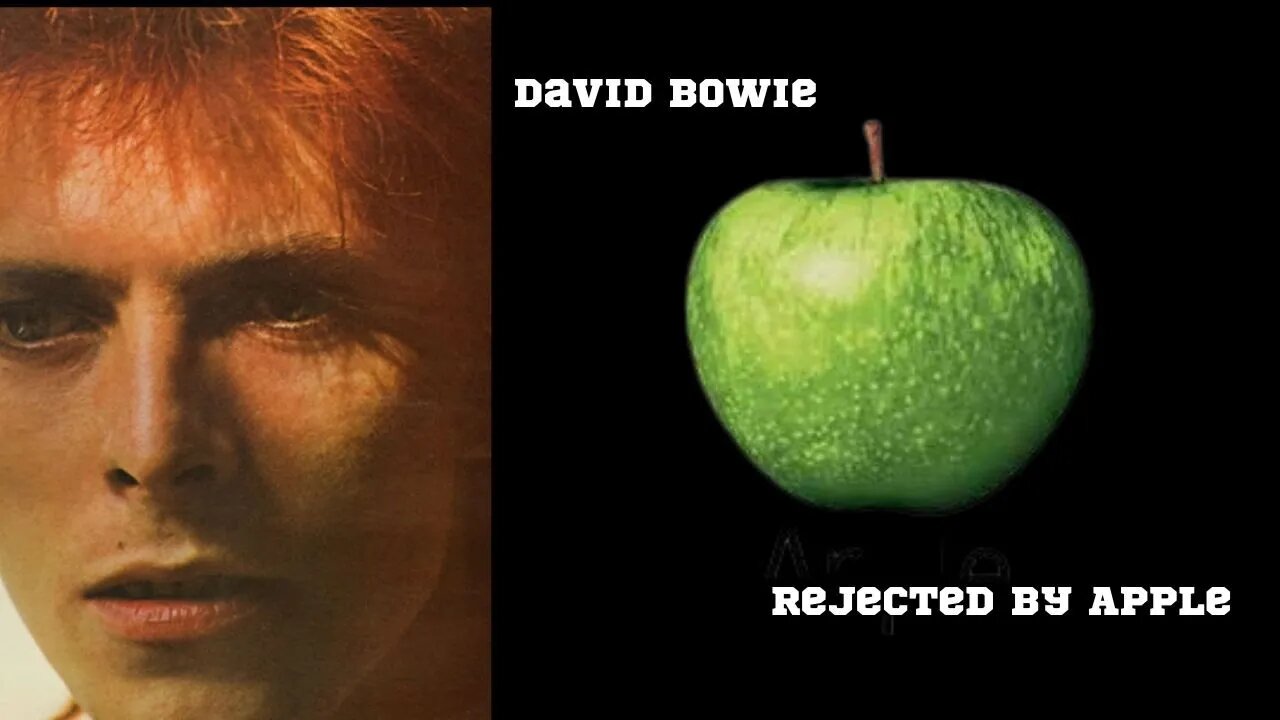Premium Only Content

Not David Bowie? See Who Apple Records Signed! #shorts #davidbowie
David Bowie, one of the most iconic figures in music history, was not an overnight success story. His early career was marked with struggles and rejections, including a key one with Apple Records in 1968. But Bowie’s determination and artistic vision led to his eventual rise to fame, forever changing the landscape of rock and pop music.
Early Career
David Bowie was born in Brixton, London, on January 8, 1947, as David Robert Jones. He showed an interest in music from a young age, learning to play the piano and saxophone. In his teenage years, Bowie formed his first band, The Kon-rads, and played at local clubs and parties. However, the band disbanded quickly due to creative differences.
Bowie then went on to record his first single, “Liza Jane,” in 1964 under the name Davie Jones with the King Bees. The single did not make much of an impact, and it was not until a few years later that Bowie would start to gain some recognition.
In 1966, Bowie formed the band The Lower Third and recorded the single “Can’t Help Thinking About Me.” The song received some airplay, but it was not until Bowie’s next single, “I Dig Everything,” that he started to gain some attention.
Struggle for Recognition
Despite the moderate success of his singles, Bowie struggled to catch a break in the music industry. He continued to play at various clubs and venues, trying to get his name and music out there.
In 1967, Bowie was signed to Deram Records, a subsidiary of Decca Records. He released his debut album, “David Bowie,” the following year. The album featured songs that showcased Bowie’s eclectic style, blending elements of rock and pop with jazz and folk.
Despite its ambitious sound, the album did not sell well and received mixed reviews. Bowie’s follow-up album, “Space Oddity,” was released in 1969 and featured the title track which became a hit single. However, the album as a whole did not perform well on the charts.
The Rejection
In 1968, David Bowie’s manager arranged a meeting with a music executive at Apple Records, the label owned by The Beatles. Bowie had hoped to get signed to the label and see his career take off.
However, things did not go as planned. The executive at Apple Records, Tony Bramwell, turned Bowie down, stating that his music was “too weird for the kids, and nobody else will buy it.” Bramwell also suggested that Bowie try his luck in America, believing that his music might find a more receptive audience there.
The rejection from Apple Records hit Bowie hard, and it caused him to reassess his music and artistic vision.
Impact on Bowie’s Music and Artistic Vision
David Bowie has always been known for his distinct and ever-changing style. After the rejection by Apple Records, Bowie became more determined to find his voice and take his music in a new direction.
During this period, Bowie began to experiment with different sounds and styles, incorporating elements of avant-garde, electronic music, and funk. He also started to play with gender and sexuality, taking on different personas and creating a theatrical stage presence.
These changes are evident in Bowie’s third album, “The Man Who Sold the World,” released in 1970. The album featured a heavier sound and darker lyrics, showcasing Bowie’s growing interest in the occult and science fiction.
Bowie’s next album, “Hunky Dory,” released in 1971, showed a more melodic and accessible side of his music. The album featured the hit single “Changes” and showcased Bowie’s growing confidence as a songwriter and artist.
However, it was Bowie’s next album, “The Rise and Fall of Ziggy Stardust and the Spiders from Mars,” released in 1972, that catapulted him to stardom.
“The Rise and Fall of Ziggy Stardust and the Spiders from Mars”
The album featured the character of Ziggy Stardust, an androgynous rock star who has come from another planet to save humanity. The character was a creation of Bowie’s, and he embraced the persona on stage, wearing flamboyant costumes and makeup.
The album was a huge critical and commercial success, spawning hit singles such as “Starman” and “Suffragette City.” It also established Bowie as one of the most innovative and influential artists in rock and pop music.
The Influence of Bowie’s Music
David Bowie’s music and artistic vision have had a profound impact on the music industry and popular culture. His influence can be seen in the work of countless artists, from punk rockers to pop stars.
Bowie’s blending of different genres and styles, his exploration of gender and sexuality, and his theatrical stage presence have all become touchstones for modern music.
Bowie’s music has also had a transformative effect on the lives of many individuals. His music has been a source of inspiration and empowerment for those who have felt like outsiders or misfits, encouraging them to follow their own path and be true to themselves.
-
 LIVE
LIVE
Glenn Greenwald
3 hours agoMichael Tracey Reports from CPAC: Exclusive Interviews with Liz Truss, Steve Bannon & More
2,197 watching -
 1:08:09
1:08:09
Donald Trump Jr.
4 hours agoFBI Dream Team, Plus Taking Your Questions Live! | Triggered Ep.219
51.3K109 -
 LIVE
LIVE
The Jimmy Dore Show
1 hour agoJoy Reid DUMPED by MSNBC! European Leaders Warn of the Dangers of Peace! w/ John Mearsheimer
8,350 watching -
 LIVE
LIVE
Akademiks
4 hours agoDrake and PartyNextDoor '$$$4U' Album Sells 250K first week. BIG AK IS BACK.
3,208 watching -
 LIVE
LIVE
MyronGainesX
3 hours ago $8.51 earnedDan Bongino Named As Deputy Director Of FBI And CPAC Recap
2,432 watching -
 LIVE
LIVE
vivafrei
2 hours agoBarnes Live from Seattle - Defending Benshoof in a Case that is CRAY CRAY!
3,175 watching -
 DVR
DVR
Robert Gouveia
3 hours agoLiberals EXPLODE over Elon's Email; Lawsuits FLY; Sanctions?? Congrats Dan!
16.5K5 -
 1:33:36
1:33:36
Redacted News
3 hours agoBREAKING! PUTIN LAUNCHES MASSIVE OFFENSIVE IN UKRAINE AS EUROPEAN LEADERS PUSH FOR MORE WAR
71.9K155 -
 44:39
44:39
Kimberly Guilfoyle
4 hours agoBetter Days Ahead for the FBI, Live with Asm Bill Essayli & John Koufos | Ep.199
33.3K22 -
 1:40:29
1:40:29
In The Litter Box w/ Jewels & Catturd
1 day agoWhat Did You Do Last Week? | In the Litter Box w/ Jewels & Catturd – Ep. 748 – 2/24/2025
76.6K29